How the Champions League surrendered its competitive edge
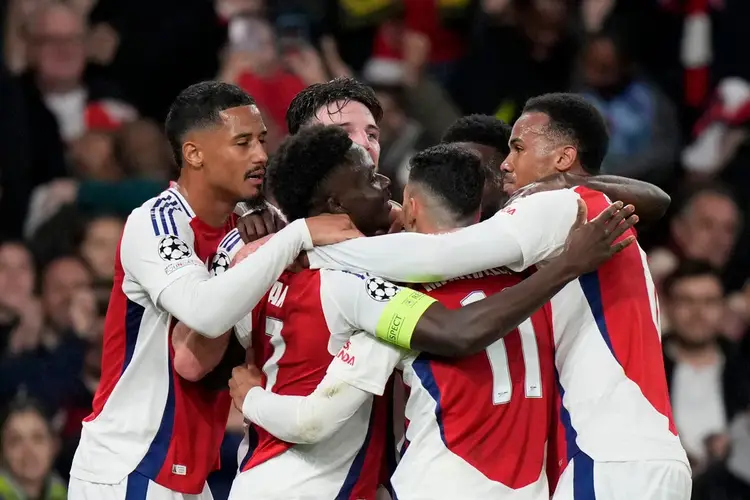
Subscribe To Miguel Delaney's Free Newsletter
Subscribe To Miguel Delaney’s Free Weekly Newsletter
Join Miguel Delaney's Free Weekly Newsletter
I would love to receive emails regarding promotions, events, and news from The Independent. Please take a look at our privacy policy for more information.
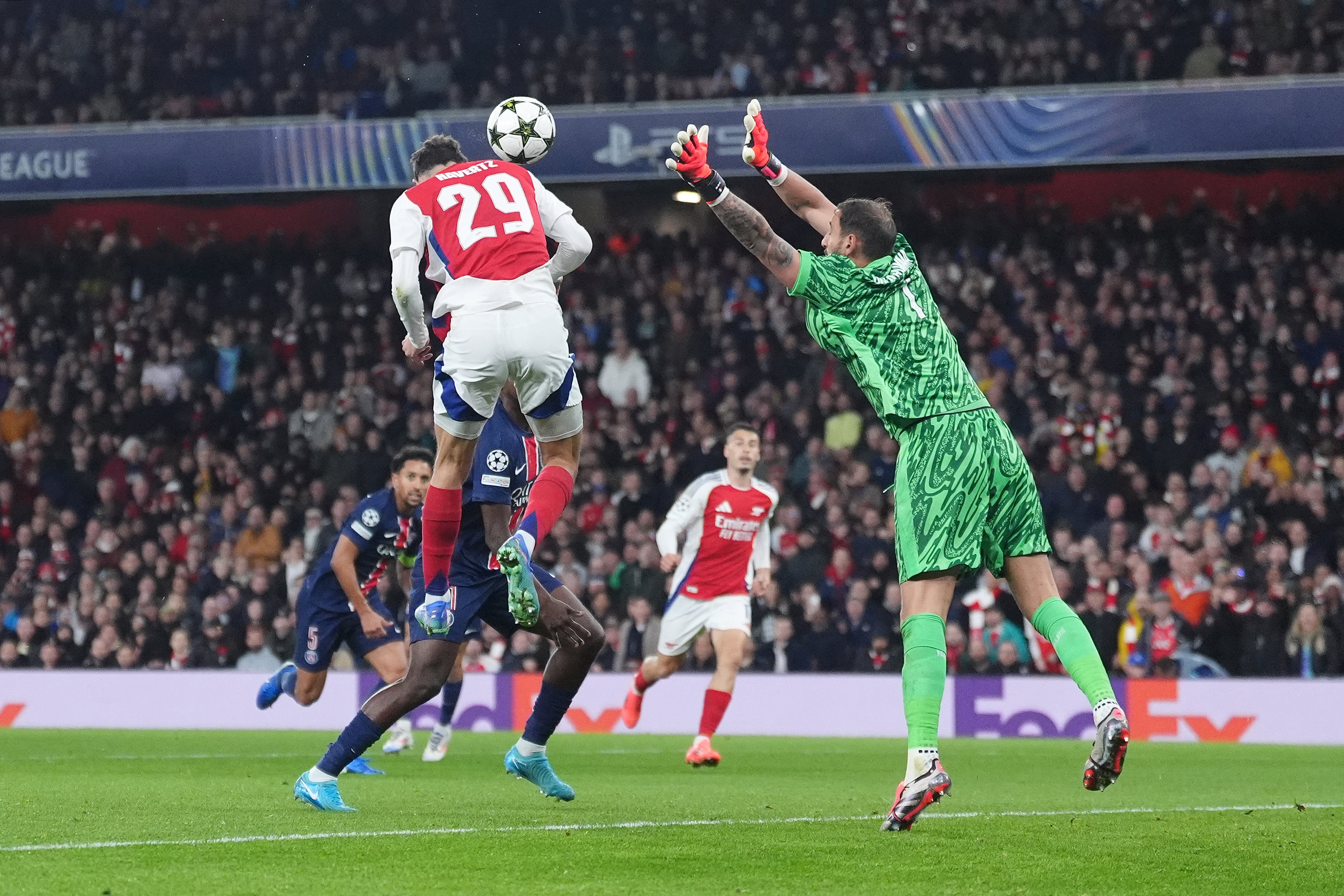
It was an exciting night in the Champions League, and Arsenal had a strong performance. Paris Saint-Germain, owned by Qatari investors, appeared to focus more on developing young talent rather than just trying to boost their image. While Arsenal's 2-0 victory showcases their impressive skills, it also raises concerns for Uefa about the competitiveness of the tournament.
This was one of the high-profile matchups that the revamped Champions League promoted—promising fans more encounters with top teams, an increased number of games, and excitement. However, it seemed like neither team considered this particular match to be all that important. It felt very different from the 2000-01 season when Lyon visited North London, and Arsenal under Arsène Wenger understood they needed to make a significant impact.
If you're finding it exhausting to keep reading about these topics, it's important to remember that they come up mainly because there isn't much action on the field. In just their second of eight matches, Arsenal secured a win that brings them closer to the top 24 spots. Meanwhile, PSG already celebrated their first victory from a narrow 1-0 win against Girona. As a result, it seemed like both teams were viewing this match from a broader perspective, rather than seeing it as a crucial Champions League confrontation on its own.
This illustrates how the Swiss system functions within its economic structure.
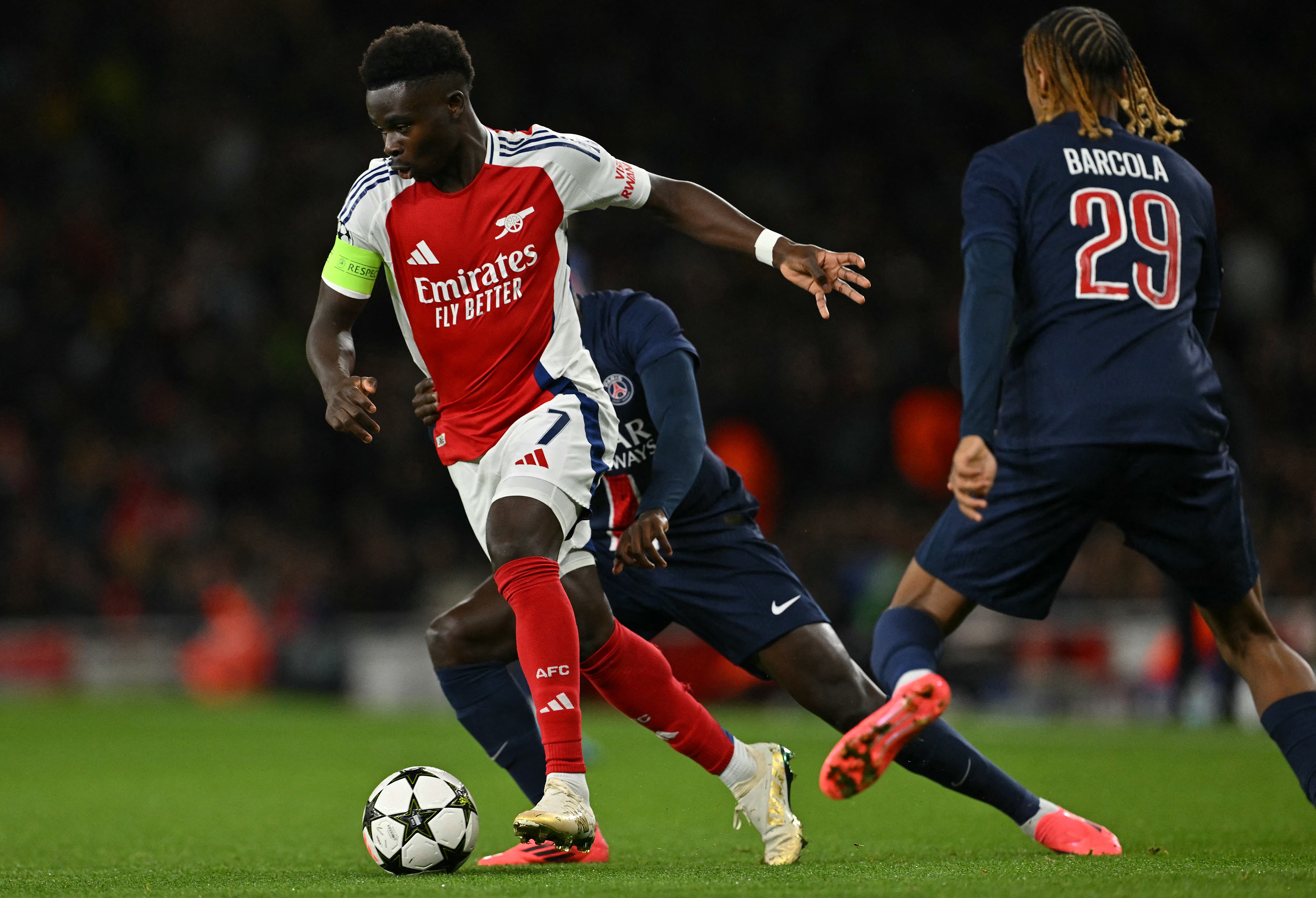
By the 20th minute, it was clear which way the match was heading after Kai Havertz scored a brilliantly placed header. It was a tough evening for Gianluigi Donnarumma, who struggled when he was caught out by Leandro Trossard's cross for the first goal. Things only got worse when he allowed a free-kick from Bukayo Saka to slip through and into the net for the second goal.
Arsenal fully earned their goals, especially considering they dominated play during that stretch. It was expected, as they are currently a more developed team compared to PSG.
The French champions grew increasingly frustrated with their earlier "Galactiques" initiative, prompting them to shift their approach. By 2023, they decided to focus on developing young talent and implementing an effective pressing style of play. This shift in strategy is why they initially targeted Mikel Arteta during that summer; his track record with this particular style had proven successful. Additionally, Arteta had been working on this for three more years, making Arsenal seem like a more advanced team.
They displayed plenty of cleverness, quickly dealing with an early attack from PSG, which included Joao Neves hitting the post and Achraf Hakimi forcing a solid save from David Raya. After that, not much else happened until Arsenal extended their lead to 2-0.
No worries. PSG is definitely capable of earning points against PSV Eindhoven and Salzburg. If they do, that would bring their total to nine, which many predictions suggest is likely to be more than enough to secure a spot in the playoffs.
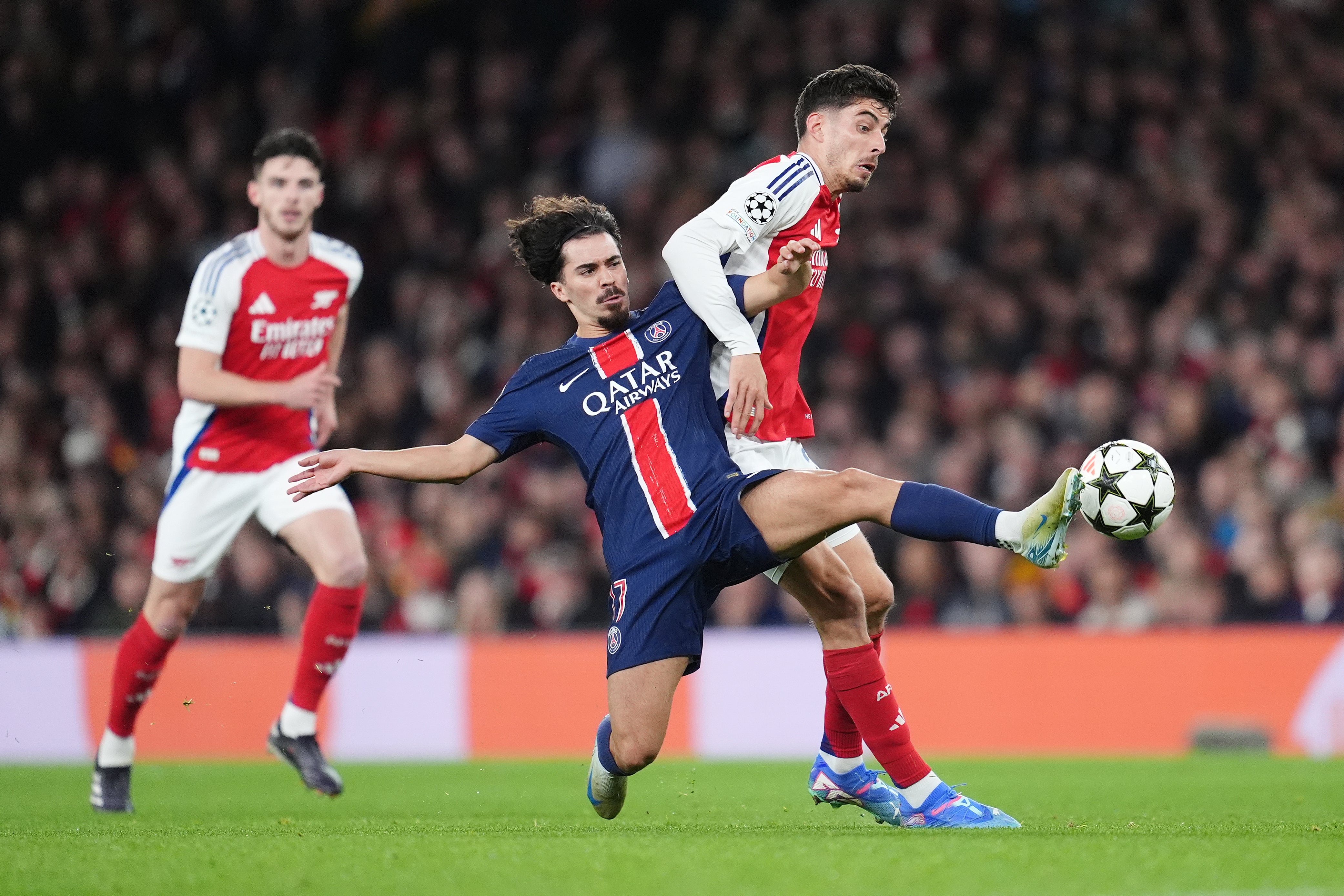
Keep in mind that this isn’t a league setup. It's a knockout style competition.
This is also why Celtic's 7-1 defeat against Borussia Dortmund didn't seem that significant, aside from a hit to their pride. A loss like this hardly affects the Scottish champions' chances of advancing, as they were expected to lose in the first place. Their focus is now on crucial matches against Club Brugge and Young Boys.
This brings us to one of the typical justifications for this new setup. The reasoning is that it’s beneficial for these "middle class" clubs to still have an opportunity, which they didn't have in the previous group stage format.
That's exactly the issue at hand. Celtic is forced to depend on that situation because over the past thirty years, and particularly in the last eight, football policies have created financial disparities that have harmed fair competition. The skewed prize money from the Champions League has played a major role in this, to the extent that the repercussions have started to hinder the integrity of the competition.
This has been UEFA's biggest blunder, resulting in a wildly mismatched competition. It's an important point to note, especially since the matches often feel so unremarkable. This lack of excitement is intentional.
The most affluent clubs, starting with Milan and Rangers in the late 1980s, believed that the uncertainty of European competition was not favorable for their finances or planning. They craved stability. They wanted additional matches and assurances. They were seeking more in every aspect.
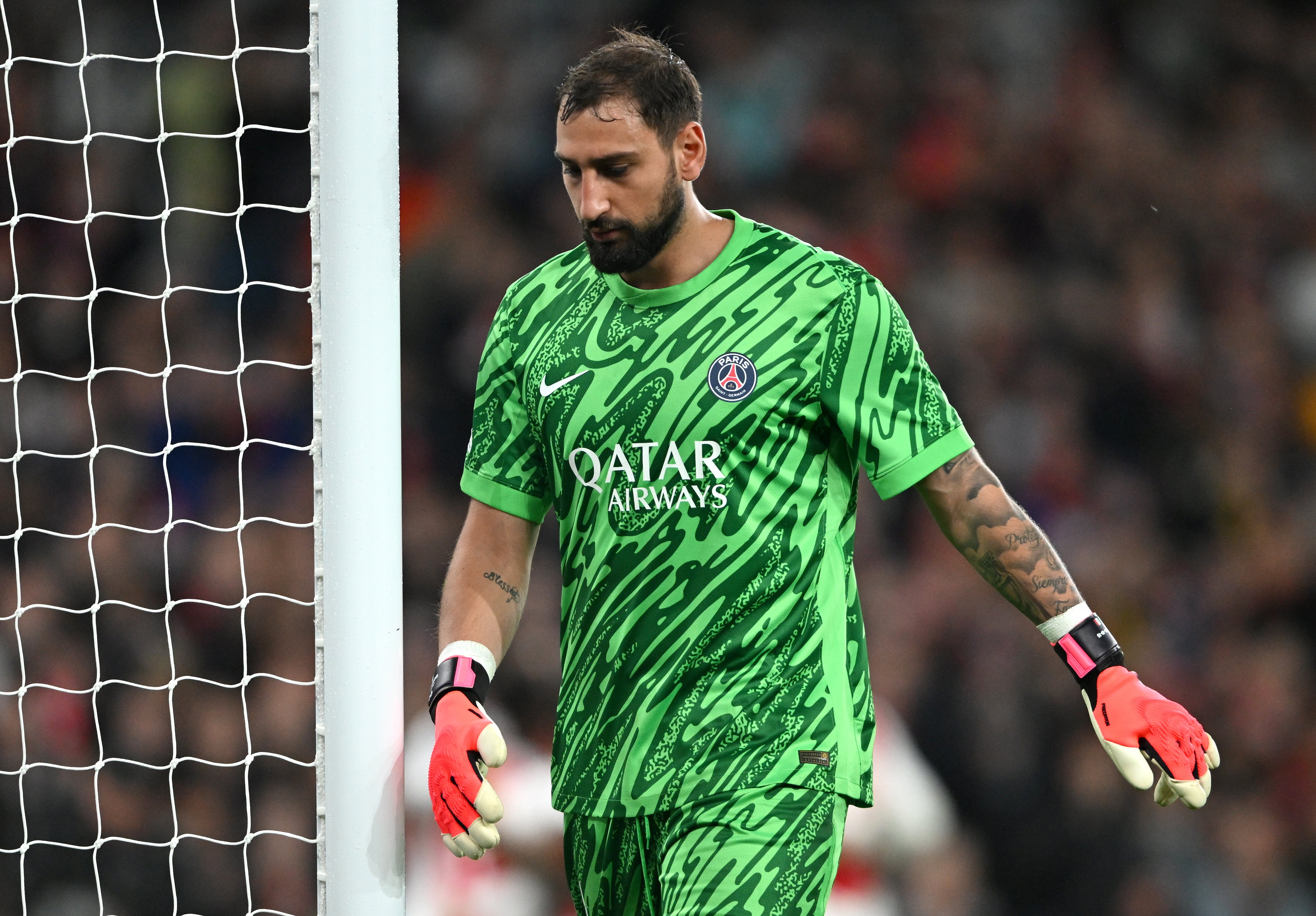
That's exactly what this is. It’s something you can see coming. It’s just padding. It highlights the underlying conflict in viewing competitive sports solely as a “business,” especially for teams that don’t necessarily have to turn a profit. Their main goal is simply to remain sustainable.
Is it possible to maintain interest in this?
It's clear that certain games nearing the finish will have a lot at stake, particularly around the seventh to ninth positions and the 23rd to 25th spots. These are crucial since they determine who makes it into the top 16 and the playoffs.
When the time comes, there will surely be discussions about how well the format is working and how impressive it is. This was also the case with the earlier eight-group format.
That being said, it's important to keep in mind that this is simply the basic requirement for sports: a bit of risk or challenge.
Instead, we will end up with a huge number of games—probably more than 100 out of the first 144—that don't really resemble real competition. They simply serve as… extra content. Matches to be played to meet requirements. There are far too many games, leading to the elimination of just a handful of teams.
It’s hard to imagine a worse plan for ruining something that was once enjoyable and prompting people to lose interest. It makes you curious about the ratings, especially from supporters of teams that aren't part of it.
Arsenal fans are definitely engaged in this season, especially since things are going really well for the team and they look impressive on the pitch. They have every reason to be aiming for the championship.
It's quite telling that they don't even need to consider this for months. All they have to do is get through this group stage. At the moment, they're in eighth place in a table that doesn't seem worth monitoring at this point.
A lot of people might already be expressing similar opinions about some of these games.









































